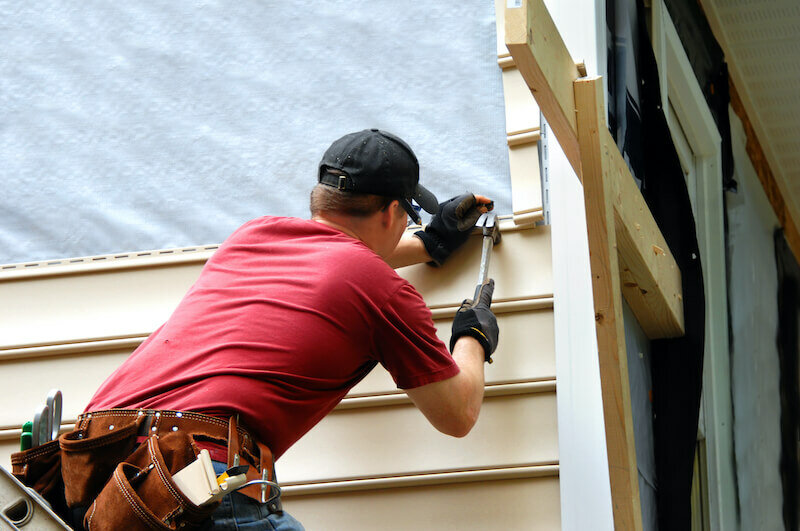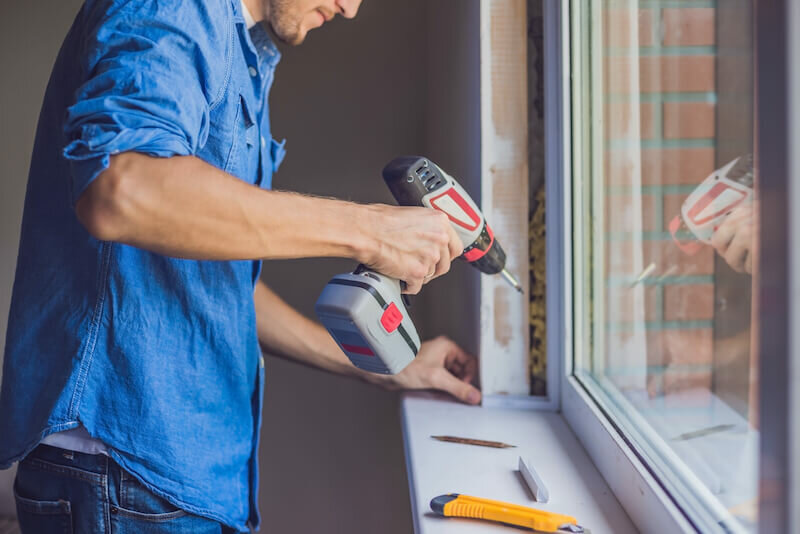Are you selling a home in Texas and wondering what not to fix when selling a house? It’s tiring to think about the many renovations and upgrades your home may need before putting it on the real estate market. Prospective buyers may only want a house with a recent kitchen remodel. You might have trouble selling a home that did not undergo vital home improvement projects.
Yet, you may not need to remove all cosmetic flaws and conduct significant upgrades before selling your place. Keep reading if you want to learn what not to fix when selling a house. Below, we outline the things not worth fixing and the minor or major repairs you should consider. Well, let’s get started!

Understanding the Costs of Selling a House
Before defining what not to fix when selling a house, it is vital to understand the overall costs of selling property. While some fees can get negotiated without a problem, many set prices for selling a house still require the sellers to foot the bill.
The significant expense is that of the real estate agent fees. Usually, you will need to put down 5 or 6 percent of the home sale price. On top of this, you should put aside 2 to 4 percent of the purchase price to cover transfer taxes, attorney fees, and other bills.
Home sellers will have to cover the real estate commission fee of 5 to 6 percent. For example, a $300,000 home means you’ll need to spend at least $15,000 on the realtor’s commission. You may want to negotiate a lower commission rate with your real estate agent.
Closing costs, however, usually fall onto the potential buyers. Nonetheless, there are some closing costs that sellers need to bear responsibility. For instance, as the seller, you may need to cover HOA fees, title insurance, and property or transfer taxes.
If homebuyers don’t take on some closing costs, you may need to cover the brokerage bill, escrow, and courier fees.
Yet, one of the highest costs relates to home repairs, especially if a home inspection report uncovers significant issues. You may find the return on investment after completing renovations and landscaping projects worth the trouble. However, major upgrades can cost you a pretty penny, so you’ll need to prepare a budget to cover the costs before you start selling your home.
Types of Fixes to Make on Your House Before Selling
First, you will need to improve your home’s curb appeal to boost its value and attract potential buyers. Keep the outside clean and welcoming. Work on the landscaping and add some small bushes, plants, and flowers. First impressions are vital for ensuring prospective buyers get excited about your home.
In addition, you should complete all home improvement projects you’ve been meaning to get done. For instance, homeowners should repair any broken light fixtures or old faucets. Home sellers should also upgrade their kitchen cabinets if they’ve been around for decades and the hinges are falling off.
In general, you will want to fix major electrical problems with the help of an electrician. You may want to get a home inspector to check your home before putting it on the real estate market. Does your house have water damage? Then you should replace any flooring that shows water stains or hairline cracks.
Is the paint on your walls chipped? Then repaint the walls, but pick neutral colors that don’t turn off potential buyers.
Another part of fixing up a house before selling it in Texas includes decluttering. Get rid of excess papers lying around. Donate books, old toys, clothing, and other unnecessary items. Put other things in containers and hide them far away in closets. Organizing, decluttering, and fixing up your home will make it much easier to sell.
Things Not Worth Fixing Before Selling Your House
While you should consider repairing the most important parts of a home before selling it, certain repairs are not worth completing before putting your house on the market.
Essentially, fixing everything will likely cost you more than you would gain from the sale. Therefore, you will want to fix up and invest only the amount of money that would give you a greater return after the sale.
You should seek out the advice of a real estate agent before you decide on renovating any part of your home. Then, you will want to figure out your return on investment (ROI) and whether you’ll recoup the cost of the repairs.
The type of home repairs you can avoid include:
- Cosmetic flaws like replacing countertops
- Minor electrical issues, such as loose outlet plugs or light switches not connected to anything
- Driveway cracks or fractures in the walkway
- Grandfathered-in building code problems
- Partial room remodels
- Replacing removable items
- Replacing old appliances with brand new ones
Cosmetic flaws like minor scratches on the wooden floors or a cracked tile do not need repair since most home buyers will probably not even notice the issues.
Minor electrical problems like loose or dead outlets do not need repair, while more substantial issues like drooping light fixtures or an outdated electrical service panel should be fixed.
Further, most buyers will not nitpick any cracks in your porch walkway or driveway. Also, homes built 50 or 60 years ago may not meet all of the current building codes, but as long as the home complied with building codes when it was built, the home is usually grandfathered-in. Therefore, you probably won’t need to comply with all current building codes.
Minor and partial room upgrades are also not worth pursuing. You will have to either remodel the whole room or leave it alone, as a new vanity mirror may only make the old tiles look more dated.
It is also easier and cheaper to remove old appliances instead of replacing them altogether. For example, instead of buying a brand-new washing machine, simply remove the old or broken one and list the home without a working washing machine.
Yet, if there are appliances that you will need to replace, do not buy brand-new appliances. Instead, you can replace old, worn-out, and broken items with used appliances in good working order.
Essentially, you won’t need to fix everything before selling your home.
Average Costs of Fixing a House in Texas
Renovating and fixing a home in Texas can cost you plenty of money. You are likely to spend anywhere from $25,000 to $45,000 if repainting your walls and making small repairs around the property.
Then, if you want to conduct minor repairs, repaint the walls, and conduct a complete kitchen remodel, you can expect to pay anywhere from $46,000 to $75,000. If you’re looking to get a kitchen renovation, bathroom remodels, indoor painting, minor repairs, and handling major upgrades, you can expect to spend $76,000 to $100,000 or more.
These numbers are specific to Texas, so you may spend even more in a different state. Another breakdown of the costs in Texas involves the following prices.
- $1,200-$2,000 for upgrading the electrical service to 100 amps
- $2,000-$4,000 to install a mid-efficiency forced-air furnace
- $3,000 to install a central air conditioning system
- $2,000-$3,000 to replace galvanized piping with copper in the bathroom
- $100-$300 to install one storm window
If you do not have the funds to repair your home and want to sell it in its as-is condition, then you do have options. You can always try selling to cash home buyers in Jacksonville and other parts of Texas. Cash home buyers, house flippers, and real estate investors tend to buy a home in its current condition at a lower price, remodel it completely, and then sell it at a higher value.
However, the most expensive home sales in Texas do not come from properties sold in an inferior condition. Therefore, if you want to sell at a high price, you will need these upgrades.
Nonetheless, if you don’t have the funds or the time to complete home improvement projects, then you should consider selling houses for cash and seek out companies that buy houses in Texas.
We buy houses in Tyler, so contact us when selling your home in Texas.

What Are Minor and Major Fixes
Major home repairs include fixing major defects like structural problems. It also includes anything that can lead to major defects like a small leak on the ceiling that can bring bigger roofing issues.
Major issues also include anything that makes it difficult to occupy a home or insure the property legally. Another major problem is a safety hazard, such as a broken electrical panel.
Minor repairs, however, consist of homeowners fixing issues with a minimum amount of knowledge about home improvement and basic tools they own.
Conclusion
Now you should know what fixes to make before selling a house in Texas and the ones to avoid. Enjoy your closing and starting an adventure in your new home!

